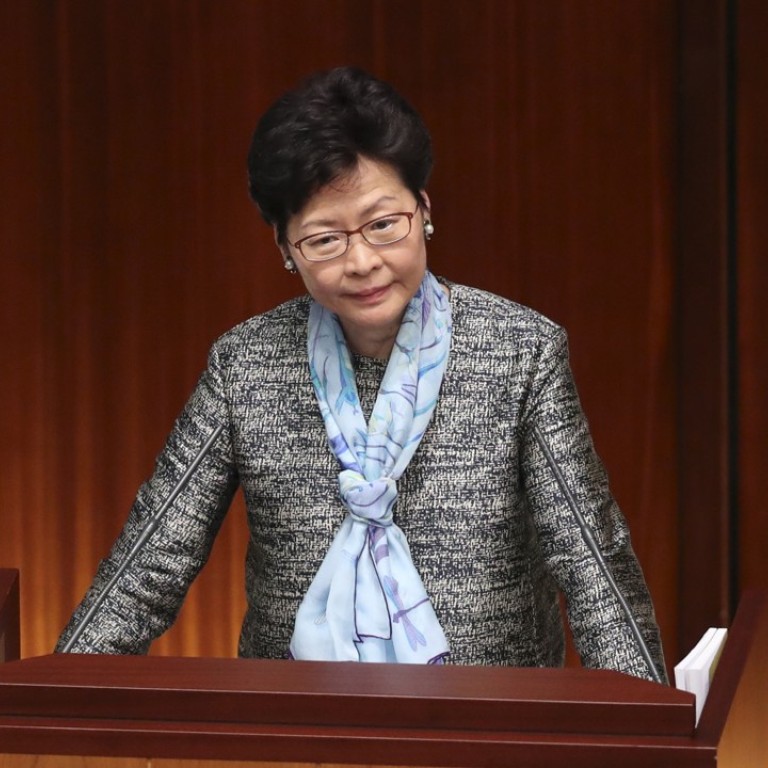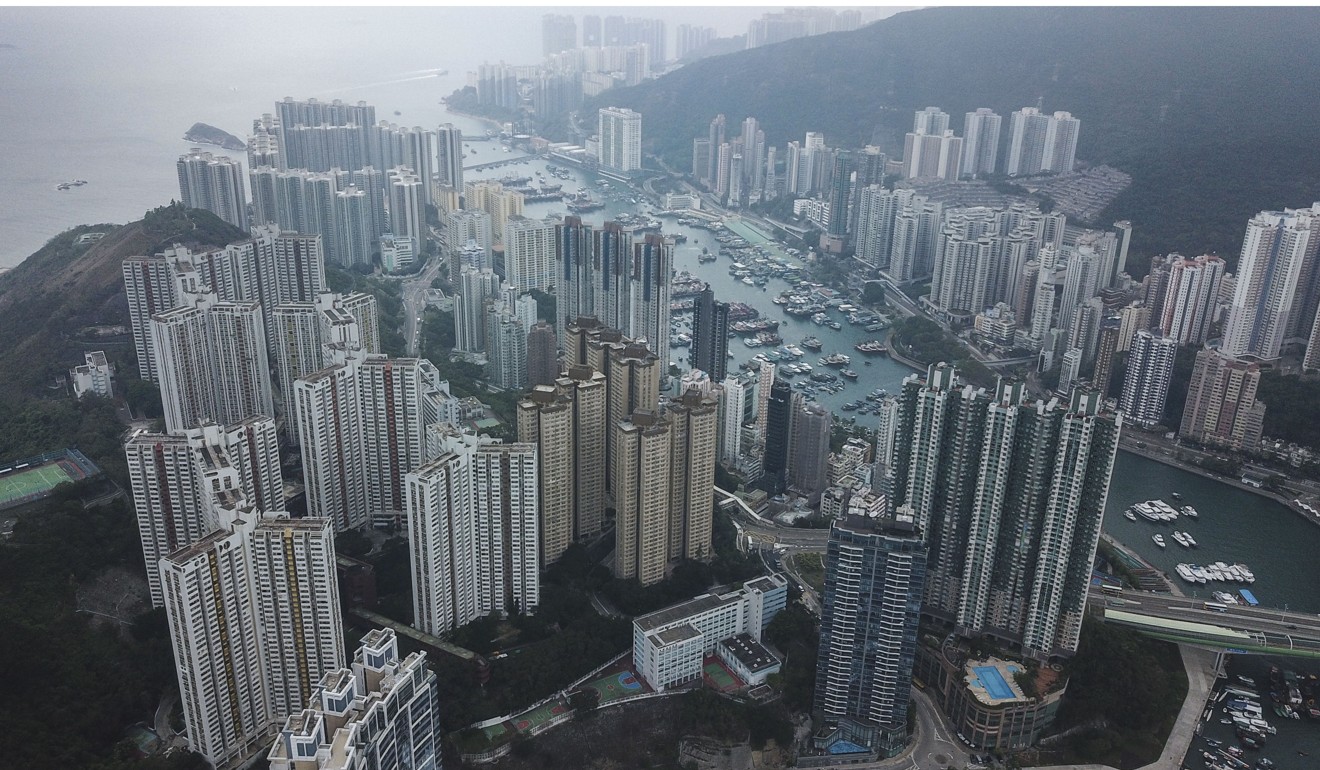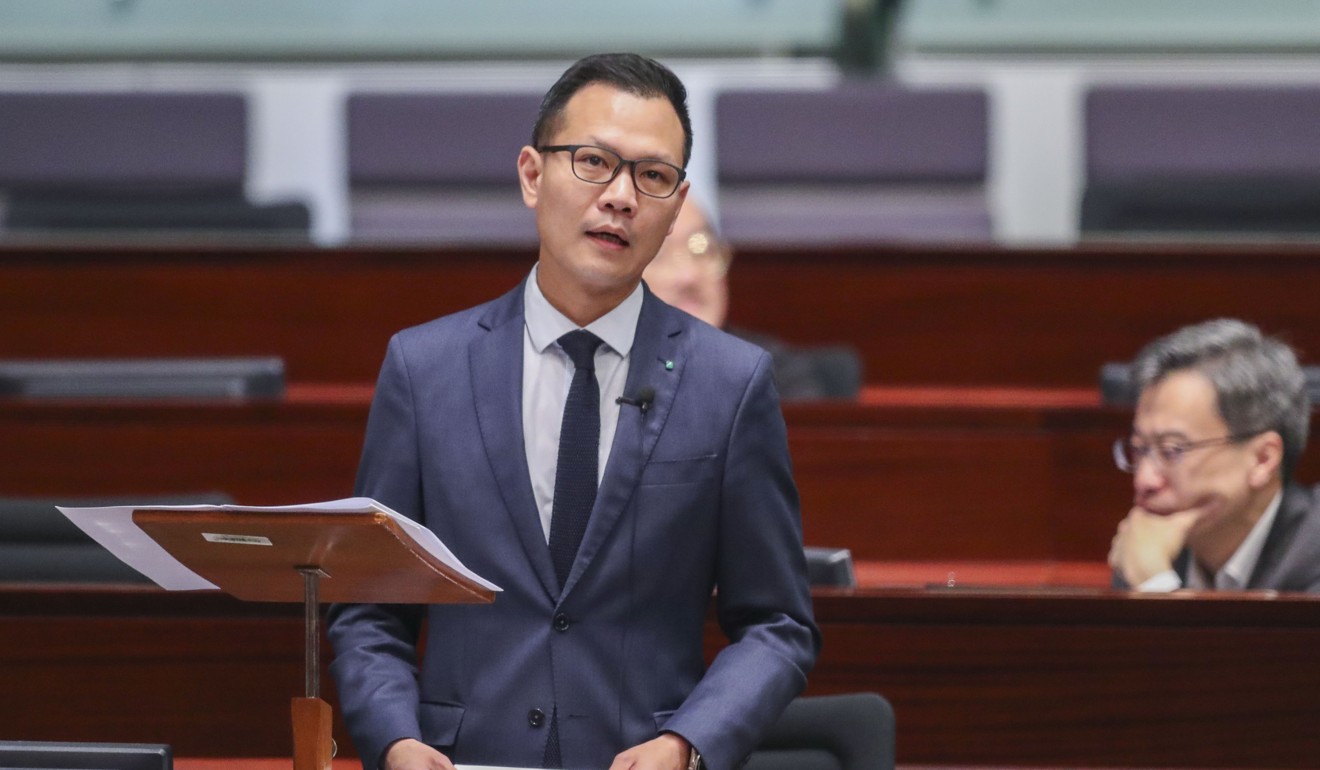
Details on vacancy tax for Hong Kong flat hoarders coming in June
Source says tax would be collected through existing channel which would save administrative costs
The government is set to unveil details this month of a vacancy tax on property owners hoarding newly built flats that remain vacant as it seeks to find immediate as well as longer-term solutions to ease the city’s acute housing shortage.
A government source said the tax would be collected through an existing channel which would save administrative costs, but it was yet to be decided whether it would be in the form of a rates charge.
Officials would allow developers a reasonable time to sell their stock of flats, the source added.
The city’s powerful property developers said they would oppose such a tax, but if the government was “bent on introducing one regardless, it should at least consider” their recommendations, including imposing such charges on the second-hand market as well.

“The study on this policy … has reached its final stage,” Lam said. “I can tell you that within this month, in June, the government will make an announcement.”
Democratic Party lawmaker James To Kun-sun said such a tax would be a mere gesture, and a more effective measure would be ramping up land supply.
To’s argument was dismissed by Kwok, also an opposition lawmaker.
No housing crisis if ex-Hong Kong leader had stuck to flats goal
“I have always respected To’s opinion, but on this issue I cannot agree that a vacancy tax is a mere gesture,” Kwok said. “A vacancy tax can force property developers to make some 9,000 to 10,000 units available on the market for the people to choose from.”
Since even lawmakers from the same political camp held different opinions on the issue, Lam said, she would leave it to the legislature to debate the policy after the announcement was made.
“In Hong Kong, Legco’s approval is necessary for imposing any tax,” she noted.

One of the key sticking points is whether the vacancy tax should apply only to unsold new flats – which would mostly affect developers – or to all vacant ones.
Some 42,942 flats, or 3.7 per cent of the citywide total, lay vacant in 2017. Among them, 9,370 were unsold new flats – 5,000 of them having been completed last year, according to the Rating and Valuation Department.
For the sake of fairness, the new policy should not be retrospective
The Real Estate Developers Association said in a statement it would oppose the vacancy tax and that the government’s figure of 9,000 empty flats was misleading.
The group, which represents major developers, noted that flats were being categorised as completed and ready for occupation when they were waiting for an official certificate of compliance which would come only after all furnishing, fitting and landscaping work had been completed. The association suggested flats should not be considered “completed” with occupation permits alone.
It called for exemptions to be allowed for non-mass market flats, projects held by developers for rental purposes and serviced apartments.
“For the sake of fairness, the new policy should not be retrospective,” the group said, calling for a grace period of two years, counting from the “real” completion of a project.
Kwok proposed introducing two separate duties on vacant properties, and a capital-gains tax for flats owned by non-permanent residents.
He said a vacancy tax could be applied to first-hand properties unsold within 12 months of receiving occupation permits, which would mostly affect developers.
He suggested the vacancy tax should be calculated as double the rateable value of a flat – its estimated annual rental value – multiplied by the number of years it stayed vacant and by a rate ranging from 33 per cent to 66 per cent.
But real estate and construction sector lawmaker Abraham Razack said it would be unfair to target property developers’ new flats, arguing that only 3,000 were actually vacant.
Razack said the remaining 6,000 flats were mostly looking for buyers, or lacked the documents required to put them on the market, such as certificates of compliance and occupation permits.
His view was in line with that of some developers, who called on the government to expand the tax to cover the 34,000 empty flats on the secondary market, which account for about 78 per cent of the city’s vacant total.
One of those developers was Chinachem Group chief executive Donald Choi Wun-hing, who said: “The number of vacant flats on the secondary market is definitely more than the number in the hands of developers. If the rule aims to speed up the sale of vacant flats, the government should handle it in a fair way, and not just target new flats held by developers.”
He said his firm only held about 200 vacant completed flats. “Nowadays, we offer new projects on the market once we secure the presale consent. Those completed unsold are either houses or special units,” he said.
Home sales show no sign of cooling as Solaria gets robust response
Choi said luxury developments still needed time after individual flats were completed for landscaping or building a club house before sales could begin, and the government should not intervene.
Sun Hung Kai Properties had the largest inventory of empty, unsold flats, numbering about 1,000 by December 2017.
Horace Cheung Kwok-kwan, vice-chairman of the pro-establishment Democratic Alliance for the Betterment and Progress of Hong Kong, said he supported the introduction of a vacancy tax.
Developers’ hoard of empty flats aggravates Hong Kong’s housing crisis
“Even if the effect may be limited, it needs to be done,” Cheung said.
Such a move would let society know that the government understands people’s concerns, he added.
But his party, the largest in Legco, would wait for the government’s proposals before making a decision on whether to support a the tax, he said.



